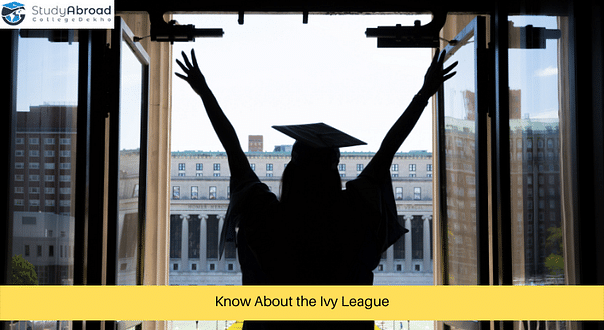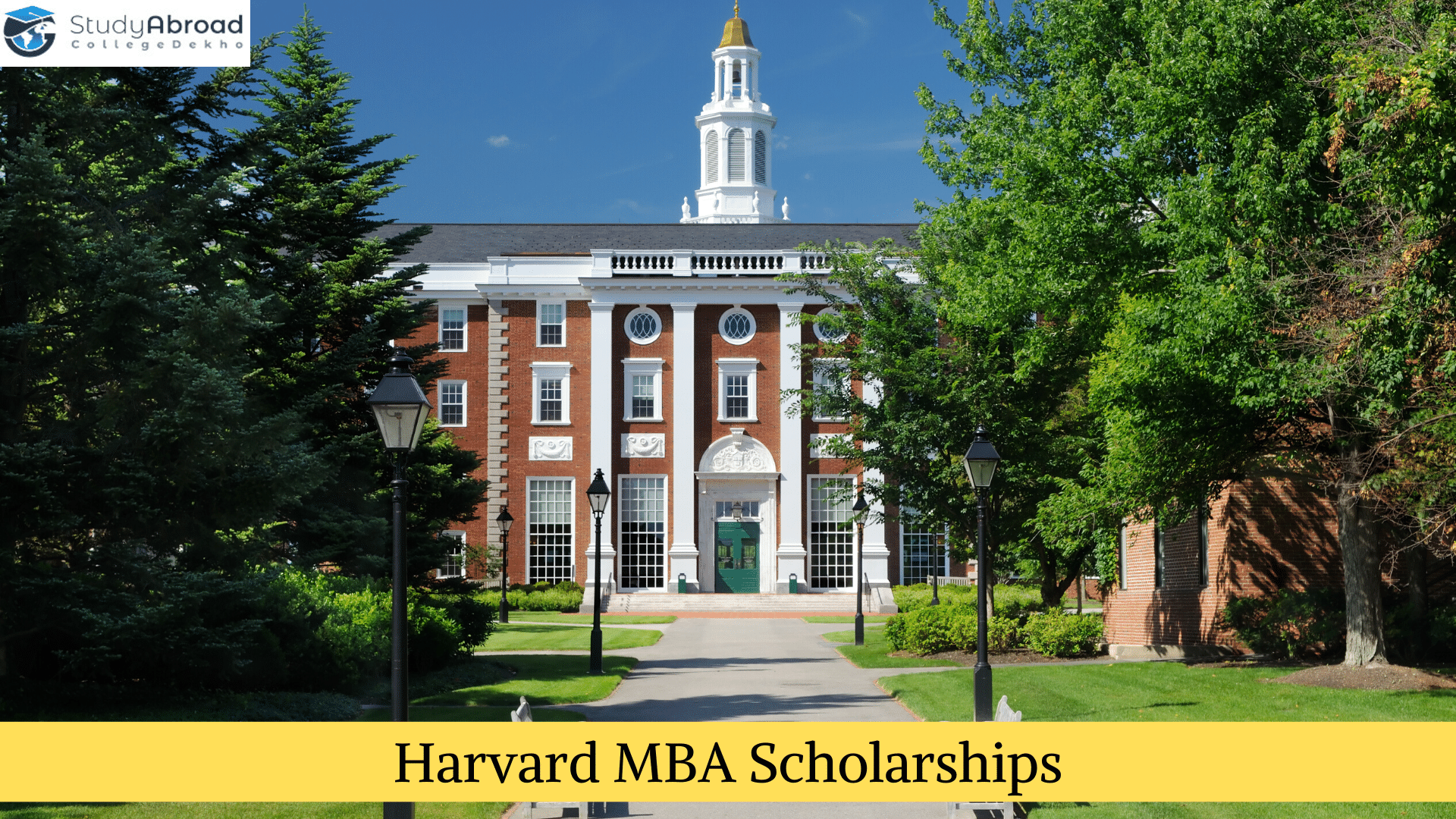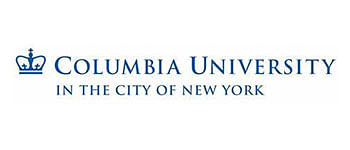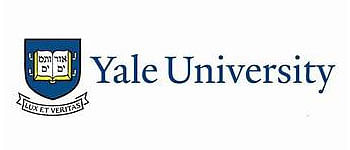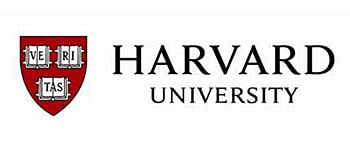Well, who does not want to get into an Ivy League school! But, do we really know everything about The Ivy League, how it came about and what makes Ivy League colleges so selectiveand difficult to get into?
Located in the Northeastern United States, Ivy League schools have been known to produce Nobel Prize winners, future presidents, and other high-achieving graduates. The title "Ivy League" itself separates the eight universities from the pack. Top recruiters always target Ivies because they are known to churn out the best in the market.
Among the many things that Ivy League schools are popular for, one thing that they have beeninfamous for is their acceptance rates. So, how do you really stand out in an Ivy League application pool, how are Ivy League universities any different from other top-ranked schools and is attending an Ivy League school even worth it? Lets find right out!
Our Ivy League counsellors are on board to not just find the perfect fit for you butalso guide you through the entire admissions process.
Kickstart Your Ivy Application Today!
Overview of Ivy League Schools
What is Ivy League exactly? Find answers to all your Ivy League questions here in the table below:
|
Establishment Year of Ivy League |
1954 |
|
Number of Ivy League Schools |
8 |
|
Average Tuition Fee for International Students |
USD 56,746 (Annual) |
|
Top Benefits |
World-class faculty, Lifelong network, brand recognition |
|
Names of Ivy League Universities |
|
|
Oldest Ivy League School |
Harvard University (1636) |
|
Newest Ivy League College |
Cornell University (1865) |
|
Average Acceptance Rate at Ivy League Colleges |
5.4%. |
|
Average GPAat Ivy League Universities |
4.04 |
Ivy League Meaning
The term 'Ivy League was introduced in 1954, when the NCAA athletic conference for Division I was formed. A group of colleges and universities in the northeastern part of the country, Harvard, Yale, Pennsylvania, Princeton, Columbia, Brown, Dartmouth and Cornell are members of an athletic conference for intercollegiate American football and other sports called the Ivy League. The Ivy League schools have been participating in sports as long as intercollegiate sports have existed in the US.
Seven of the Ivies are older than the American Revolution, Cornell was established after the American Civil War, making it the youngest member of the Ivy League. All of the Ivy League schools are private with undergraduate enrolments ranging from 4,000 to 14,000. Total enrollments range from around 6,100 to more than 20,000 every year.
Top Ivy League Universities
The eight Ivy League schools are ranked according to the QS World University Ranking 2023 in order to gain a better understanding of each university and how it ranks on the global education map.
|
Ivy League Universities |
QS World University Rankings 2023 |
US News and World Report- National University Rankings |
|---|---|---|
|
Harvard University |
5 |
3 (tied with Yale) |
|
Princeton University |
=16 |
1 |
|
Yale University |
18 |
3 (tied with Harvard) |
|
University of Pennsylvania |
13 |
7 |
|
Brown University |
63 |
13 |
|
Columbia University |
22 |
18 |
|
Cornell University |
20 |
17 |
|
Dartmouth University |
=205 |
12 |
Ivy League Colleges Acceptance Rates
The results have arrived! The Ivy League accepted a record-low number of students for the Class of 2026. While some reported figures close to last year's Class of 2025, others reported substantially lower acceptance rates. Harvard admitted only 3.19% of its 61,220 candidates, while Penn admitted only 4.40% of its applicants! See the complete list of Ivy League Class of 2026 results below.
|
Ivy League Colleges |
Acceptance Rate of Class 2026 |
Estimated Graduation Rate |
|
Harvard University |
3.19% |
98% |
|
Brown University |
5% |
95% |
|
Princeton University |
4% |
98% |
|
University of Pennsylvania |
4.4% |
96% |
|
Yale University |
4.46% |
96% |
|
Dartmouth College |
6.2% |
95% |
|
Cornell University |
8% |
95% |
|
Columbia University |
3.73% |
96% |
Why Are Ivy League Colleges Acceptance Rates So Low?
This year has proven to be one of the most competitive in Ivy League history. Acceptance rates at all Ivy League schools are declining or remaining at all-time lows. This continued tendency is most likely attributable to the following factors:
-
The Covid-19 pandemic's Uncertainty
-
Unmet demand
-
More applications per student
-
Free virtual visits
The data in the chart below illustrate that admission into the Ivy League is becoming increasingly tough. In general, more students than ever before applying to Ivy League universities. Acceptance rates at the University of Pennsylvania and Yale University increased slightly, although only little in the overall admittance picture. Harvard reported its lowest ever acceptance rate!
|
Class of: |
2023 |
2024 |
2025 |
2026 |
|
Harvard |
4.5% |
4.9% |
3.4% |
3.2% |
|
Brown |
6.6% |
6.9% |
5.4% |
5.0% |
|
UPenn |
7.4% |
8.1% |
5.7% |
4.4% |
|
Yale |
5.9% |
6.5% |
4.6% |
4.5% |
|
Dartmouth |
7.9% |
8.8% |
6.2% |
6.2% |
|
Cornell |
10.6% |
10.7% |
8.7% |
~8.0% |
|
Princeton |
5.8% |
5.6% |
4.0% |
~4.0% |
|
Columbia |
5.1% |
6.1% |
3.7% |
3.7% |
Make Your Dream of Studying in an Ivy League School Come True!
Admission Requirements for Ivy League Universities
Simply told, there is no single golden recipe for getting into an excellent American school. Accepted students come from a variety of academic and cultural backgrounds, but it is ultimately up to each Admissions Committee to determine if there is a good fit between your goals, academic record, and experience, and what the university has to offer.
In general, you must have the following entry-level or basic qualifications to apply to a graduate program at an Ivy League university:
-
Must have an equivalent of a US bachelor's degree
-
Should have all the academic transcripts and past records from all undergraduate and graduate academic institutions you have attended (GPA included)
-
Proof of English Langauge proficiency (TOEFL scores/IELTS scores/PTE Academic)
-
Standardised test scores (GMAT, GRE, LSAT)
-
Letters of recommendation and personal statement
-
Resume/ CV
Okay, these requirements are similar to those found at many colleges around the world. So, what is the big deal about applying to Ivy League schools? They normally only accept students with the highest test scores and language tests. The following are the average scores of accepted students:
-
IELTS score: 7.5 or higher
-
TOEFL score: 100 or higher
-
Average GPA: 3.71 on a 4.0 scale
-
GRE average scores ranges: 155- 170 for all subjects
-
LSAT average score: 173 and higher
-
MCAT average score: 36.6 and higher
How to Get Into Ivy League Colleges?
If you are dreaming of getting into one of the eight elite Ivy League schools, then you must already know that it is not going to be easy. But, it sure is doable. So, here iswhat it really takes to get into the Ivy League:
Know the GPA You Need to Impress Ivy League Colleges
Quite simply, given that thousands of outstanding students apply to Ivy League schools every year, these schools get the chance the best of the best. Also, their acceptance rates are low. Now, coming to Ivy League Schools GPAs, many choose not to release their average GPAs. But, if you look at the average Grade Point Averagerequired by all of the Ivies, the average stands at around 4.0. Thats what you need to achieve when it comes to getting into an Ivy League school.
Know What Test Scores are Required for the Ivy League School
Your ACT/SAT scores (for Bachelors) or GMAT scores/GRE scores (for Masters) play a crucial role in Ivy League admissions. Make sure to learn about the average test scores required by the school along with their mid-range test scores. Each Ivy League school would have a different cutoff although some schools choose not to release their average standardised test scores.
On average, students with scores within the 25th to 75th percentile range are considered competitive for admission. However, if you have scores above the 75th percentile, you would have a higher chance of getting into Ivy League colleges.
You Should Have Taken Advanced Courses
Let us face it! Even straight As are not going to be enough when applying to Ivy League colleges. You have got to stand out. Ivy League schoolsoften look for students who have taken advanced courses, be it in high school or undergraduate studies. They like to admit students who are keen to grow, achieve excellence and pursue intellectual growth through a challenging course load.
However, while doing so, you should not forget what you are actually interested in. Always ask yourself what you would eventually like to do or in which field you would like to pursue a career, or does this course interest you at all? Make sure you are doing courses that will help your journey.
Apply to Ivies with Higher Acceptance Rates
In other words, apply to Ivy League collegesthat are comparatively less selective. Cornell is the least selective with the highest acceptance rate, at 8%, whereas Harvard has the lowest acceptance rate of around 3.19%. Although 8% is still quite competitive, there is a slightly higher chance of you getting accepted to Cornell than to Harvard or Yale.
Invest Your Time in Other Areas of Ivy College Application
Grades are only one part of your college application process even when applying to Ivy League schools. Extracurricular activities, your SOP, and LORs often play a huge role in your college application.
-
Extracurricular Activities: If you have extracurricular activities that you are proud of, bring them to the forefront of your applicant. Highlight them specifically. Admissions committees at Ivies are often on the hunt for an it factor which could eventually be anything that makes you different. For instance, an entrepreneur, world record winner or a published author.
-
LOR: A good and positive letter of recommendation is proof forIvy League schools to know that you could be a valuable addition to their community. So, make sure this task is given you have spent time with or have a good relationship with. Your Letter of Recommendationshould have clear and powerful insight into your character and personality. The best way to make your LOR good enough is to ask the recommender to talk about interactions and stories about you instead of just general statements about your grades or achievements.
-
Statement of Purpose or College Essays: The first rule? Do notmake it another version of your resume. A Statement of Purpose is your chance to talk about yourself, your life, the challenges you faced, how passionate you are, what kind of efforts you made and even if you failed in something important, how did you take it or what did you learn from it.Your SOP is the best place to show what impact or effect you have made in the field you are in or on society. Try and show instead of telling it directly or it might sound meaningless.
-
When it comes to your career goals and how the university or the program could lead you to them, keep it lucid. Your SOP should be more about your immediate goal of pursuing the degree you have applied to. Make sure you are pointing out your goals directly, which you should have a clear idea about before applying.Lastly, if you deem fit, incorporate an emotional component in your college essay when applying toIvy League schools. This only means talking about the passion you have and your desire to accomplish your goals.
-
Cost of Studying at Ivy League Schools
The Ivy League is frequently regarded as the pinnacle of higher education. This distinguished group's eight schools are well-known for their unequalled academic prospects, vast endowments, top-tier professors, and wealth of options. However, it is also recognized that this reputation comes at a cost. You've definitely heard how pricey these colleges are, but how much does an Ivy League education actually cost?
The most effective and accurate way to assess the true cost of an Ivy League education is to look at the average cost of attending or studying at each Ivy League school, as mentioned below:
|
Ivy League Colleges |
Average Annual Tuition Fees |
Average Annual Salary after 10 Years of Graduation |
|
Harvard University |
Bachelors - USD 53,968 Masters - USD 50,654 |
USD 139,100 |
|
Brown University |
Bachelors - USD 60,584 Masters - USD 60,363 |
USD 89,100 |
|
Princeton University |
Bachelors - USD48,502 Masters - USD 56,470 |
USD 116,300 |
|
University of Pennsylvania |
Bachelors - USD 60,042 Masters - USD 41,760 |
USD 131,600 |
|
Yale University |
Bachelors - USD 57,700 Masters - USD 44,500 |
USD 124,400 |
|
Dartmouth College |
Bachelors - USD 59,458 Masters - USD 58,120 |
USD 110,200 |
|
Cornell University |
Bachelors - USD 59,282 Masters - USD 30,042 |
USD 101,200 |
|
Columbia University |
Bachelors - USD 60,532 Masters - USD 51,194 |
USD 115,600 |
Financial Aid Offered by Ivy League Schools
Ivy Leagues are generous with financial aid because they all share the goal of meeting inclusivity by ensuring that tuition fees are not an impediment to attending. In reality, many students who get admitted to an Ivy League university may be able to complete their education without the need for student loans.
Most Ivy League colleges, as evidenced by their financial aid rules, do not anticipate their students to borrow. Instead, they offer grants and scholarships that do not have to be repaid:
-
Harvard: Approximately 55% of Harvard students receive scholarship aid, and 20% pay nothing to attend. Families earning less than USD 65,000 per year are not asked to contribute financially.
-
Cornell: The average grant amount for a first-year student in the class of 2021 at Cornell was USD 40,686, with the maximum grant in that academic year reaching USD 76,997. Cornell does incorporate loans as part of its financial aid packages but assures that families earning less than USD 60,000 with assets under USD 100,000 would not be asked to make a contribution or receive loans.
-
Princeton: In the 2019-20 school year, 83% of Princeton graduates graduated debt-free. Princeton also offered an average stipend of USD 56,500 to applicants accepted into the class of 2023. Students from low-income families can also apply for a grant that pays the full cost of tuition and room and board.
-
Columbia: Students are not expected to borrow at Columbia. Columbia awards more than USD 150 million in grants and scholarships each year, with half of all students benefiting. The average grant is USD 52,073. Parents with incomes less than USD 60,000 are not required to donate any funds to their child's education.
-
Yale: This university does not ask students to borrow money for education. Scholarships, parent donations, and student contributions form the foundation of financial aid programs. Parents earning less than USD 75,000 per year are not expected to contribute financially.
-
Brown: Students are not expected to borrow, and loans are not included in the financial aid package for all students who qualify. Families earning less than USD 100,000 are not expected to contribute, and 45% of the class of 2024 got need-based aid that does not have to be repaid.
-
UPenn: Students are not expected to take out loans because Penn aspires to cover 100% of tuition costs through grants, parental support, and student contributions. Families earning less than USD 65,500 a year are eligible for aid packages that cover tuition, fees, lodging and board.
-
Dartmouth: According to its website, no matter who they are or where they're from, all students at Dartmouth have their financial needs addressed. Dartmouth claims that its scholarship will pay the full cost of tuition, no loans required, for families with less than USD 100,000 in income and average assets.
What Are Ivy League Schools Looking For?
Every year, hundreds of thousands of high-achieving students apply to the Ivy League, and the number is growing! The Ivy League received 311,948 applications for the 2023 class and a record 400,750 applications for the 2025 class. The entering class of 2026 is expected to break that record with around 414,000 applications!
While great credentials will not damage your application, it may surprise you that Ivy League universities do not want ideal pupils. They are also not seeking students that are well-rounded. The application pile is brimming with youngsters who engage in everything but shine in none of them.
Ivy League universities are also seeking game changers that can positively impact their community. They are seeking humble leaders who will bring accomplishment and notoriety to the school, as well as individuals who are eager to share their knowledge to help other students achieve their goals.
Are Ivy League Schools Worth it?
Getting into an Ivy League university is not going to be easy but if you do get in, it is certainly going to be worth it. From getting access to various academic and student life advisors to building exclusive Ivy League networks,Ivy League colleges can change your life and offer you a wide range of benefits.
That said, US universities with lower tuition fees also offer almost an equal standard of academic excellence. Let us name some Ivy League equivalents or the Public Ivies right here: William & Mary, UC Berkeley, University of Michigan, the University of Virginia, and the University of North Carolina at Chapel Hill. This list was further expanded in the 2001 book Greenes Guides to Educational Planning to include universities like Indiana University Bloomington, the University of Wisconsin-Madison, the University of Washington and the University of Georgia.
While every Ivy League school charges over USD 50,000 annually in tuition and fees, many of the Pubic Ivies charge only around USD 10,000. This further puts many in the dilemma of Ivy vs liberal arts colleges or the Little Ivies. So, before you decide on which college to embark on your new journey, weigh your pros and cons carefully.
Find out if the Ivies meet your unique requirements and consider taking an expert opinion onwhich college and course to apply for. Get in touch with our counsellors for free at abroad@collegedekho.com.
Get Guidance to Write the PerfectSOP for Ivy League Schools.



